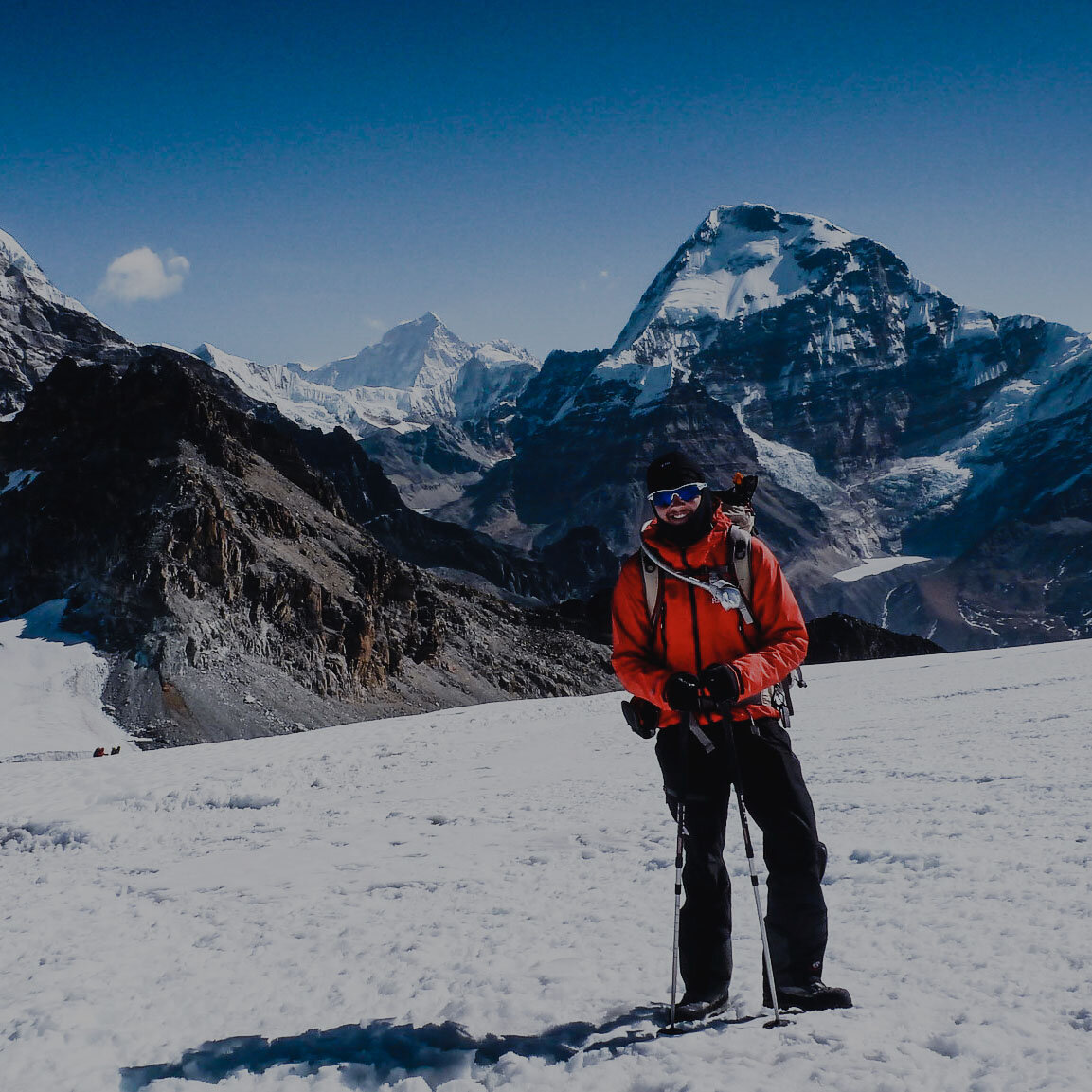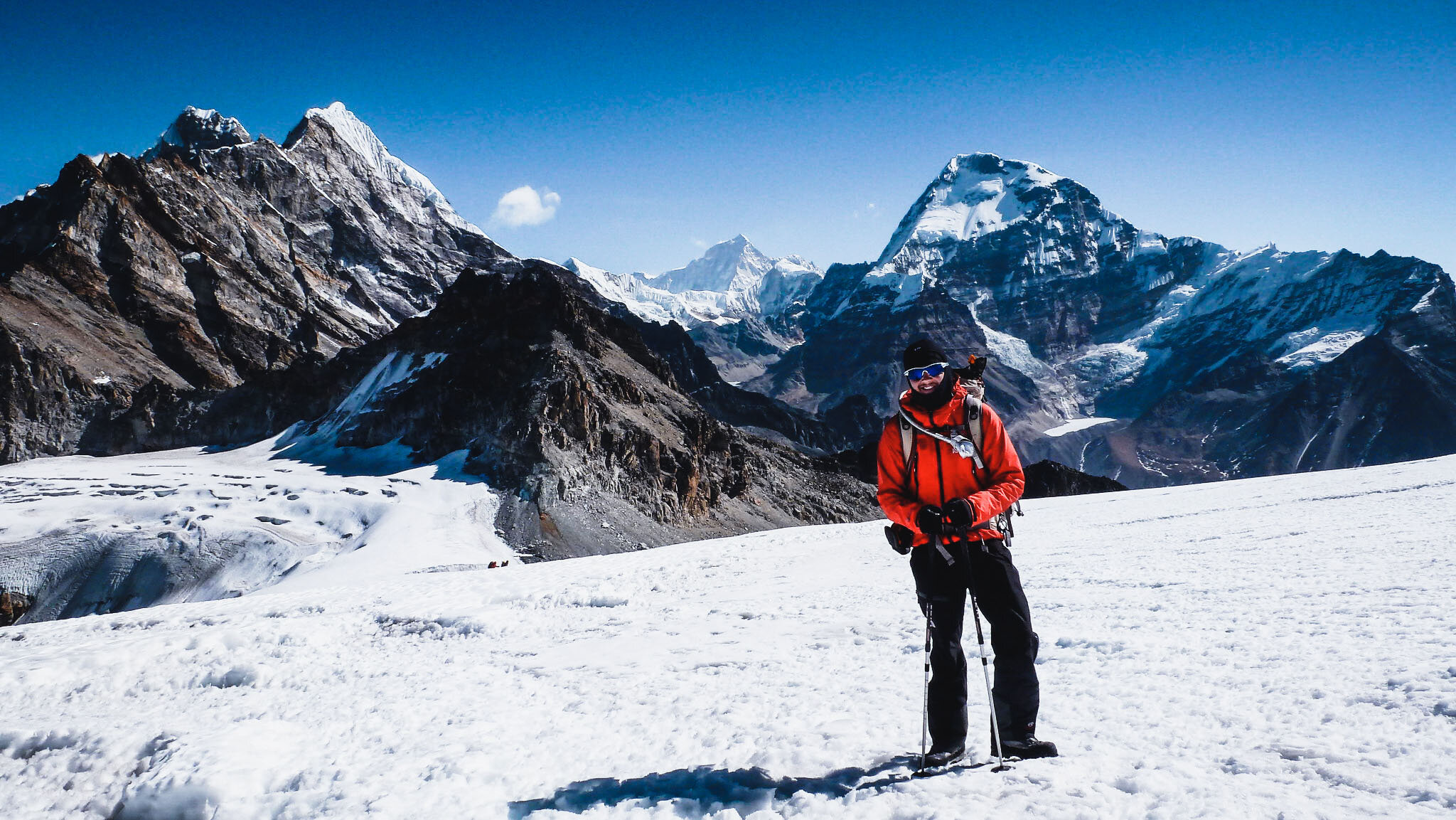Jack Williams: From fighting cancer to completing mountaineering adventures

Interview: Tom Warburton
For many diagnosed with cancer, finding an outlet for distraction and motivation can be challenging. For Jack Williams, an adventurer who was diagnosed with testicular cancer, getting outside and into the mountains proved the perfect remedy.
Dure magazine caught up with Jack and learnt about his aspiring new project to help those suffering from cancer.
“The outdoors can spark a new sense of life, especially in those who are fighting personal battles. It is a dangerous place, but being in the mountains is also life in its purest form.”
Hi Jack, Thanks for talking to us, can you tell us a little about yourself?
Hi guys, absolutely! So, in a nutshell, I'm a mountain leader, father, adventurer and I've had a few spells with cancer here and there. I grew up in the Midlands, but have relocated to stunning North Wales where I operate my trekking business when I can.
A few years ago you were diagnosed with testicular cancer, how did that impact your ability to get outside?
Cancer was a motivator from the get-go really. Previously I had lost both grandfather's and my dad to the disease, not all the long before. After that, I had this inner sense that it may have its eye on me.
When I discovered I had it, I seemed to kick into adventure overdrive before I even considered the potential consequences of the cancer.
You’ve talked about how getting outside helped you deal socially and psychologically, how did it support you?
First and foremost, I'd say it was a distraction. As I said, I almost immediately looked to adventure travel within literally hours of discovering I had the disease, and I'd never been more motivated to do so.
On the day of my surgery, I registered for an Arctic expedition that was due to depart just a few months later. Preparing for this trip, and securing a spot seemed to dominate my life at the time, and put cancer right to the back of my mind.
I actually went to a pharmacy to collect drugs for the cancer and was asked by the pharmacist if I could think of a reason why I would get them for free. I replied 'not that I can think of', and she went off to get them. When she came back, I quickly asked 'actually, I have cancer, does that count?' She laughed and sent me on my way. Nice to have saved £9!
Cancer not only affects you mentally, but the illness can also have a severe impact on you physically, did this restrict your ability to explore?
Yes and no. The cancer itself caused me some pretty extreme fatigue, I'd fall asleep mid-conversation, especially if I was being rocked in the car - not driving might I add!
Having the testicle removed also caused some mood swings as my body adjusted and compensated for the change in testosterone. Besides that, the biggest impact came from the surgery itself. The testicle is actually removed from the lower abdomen, and not via a more direct route, shall we say.
That did mean certain movements were difficult for a little while, and long walks were off the cards for a bit.
You hope to help those suffering from cancer by providing free hill skills courses in Snowdonia. Can you tell us a little about your latest project?
When I was applying for the Arctic expedition, it was a very public affair. I ended up getting a lot of messages from others with the disease looking for support, or simply a chat. In honesty, I was a bit out of my depth here, and some of the illnesses were truly awful and I did struggle to take some of it in.
But, where I may not pass for a councillor, I have been exploring mountains around the world for about 15 years now, and I want to share some of the amazing benefits I've had from embracing adventure with others who have been touched, directly or indirectly, by cancer.
I plan to run monthly or bi-monthly guided days in the hills, with an emphasis on developing the skills needed to explore our mountains safely. The benefits of time outdoors for mental health is well known, but stepping into these places unprepared can be extremely dangerous. I hope my courses offer a foundation to explore safely to those who might need it most.
You’ve been a mountain guide for several years, have you found that being outside is a psychological remedy to not only yourself but also others?
Absolutely. I got into hill walking and mountaineering because I enjoy the views, and because my days-off fell when everyone else was working - so I'd pack the car and head for a solo wander most weeks.
Since then, being a part of various growing hill walking communities did feel like foreign territory to me, but, it's shown me how much the outdoors can spark a new sense of life, especially in those who are fighting personal battles. It is a dangerous place, but being in the mountains is also life in its purest form.
As an experienced mountain leader and adventurer, you must have some pretty funny mishaps? Do any experiences stick out?
Each funny mishaps float in a sea of funny, and unfortunate mishaps I think! I've had tents collapse on me in the middle of the night, I've rolled maps up in my tent by accident whilst packing up, but most of all, I'm quite forgetful.
Last week I set off from home for a photoshoot in my local hills, only to get everything set up, and see the little 'No Memory Card' warning flash up on the screen. That was a pain. I've forgotten boots too, I did an outdoor first aid course in the Peak District wearing a combination of Converse and B3 mountaineering boots. Lists are my friend if I remembered to write them.
As a mountain guide and seasoned explorer is there any piece of equipment you couldn’t live without?
That's such a tricky question. Of course, I should probably say something like my boots, I think with good boots you're well on your way. Avoiding the obvious option, however, I'm going to have to say a camera. Nothing flashy (no pun intended!), but, I love grabbing a few snaps when I'm out and about!
You’ve undertaken some pretty awesome expeditions including to the Vatnajokull Glacier in Iceland, the Mera Peak and the Sahara Desert, what was your hardest expedition?
Another tricky one. They were all so different. The Sahara dried out my feet, they cracked, bled, blistered, the works. Mera Peak was a real test at altitude, and extremely cold. But I think if one stands out as the hardest, for me it would have to be Vatnajokull.
I was out of my usual mountain comfort zone here. Whilst it was very cold, it was Icelandic summer, so it was also just about warm enough for things to be slushy. I hired kit that ended up not being great, so I spent about two weeks soaking wet, as well as freezing cold! Iceland is a challenging place!
If you had any advice for anyone who may be in remission, recovered or diagnosed with cancer what would you recommend?
I'd say reach out. Of course, everyone will be going through a different experience, and for many, I'm sure time outdoors could seem a foreign concept, but, there are some great social groups out there. They're supportive, experienced, and welcoming. It's a great way to get into the outdoors, for anyone!
If you're taking on cancer, in whatever format, if you're new to the outdoors these groups are a great way to make the most of what out natural spaces have to offer. As soon as I can, I aim to set out once or twice a month with supporting cancer patients in this exact way.




